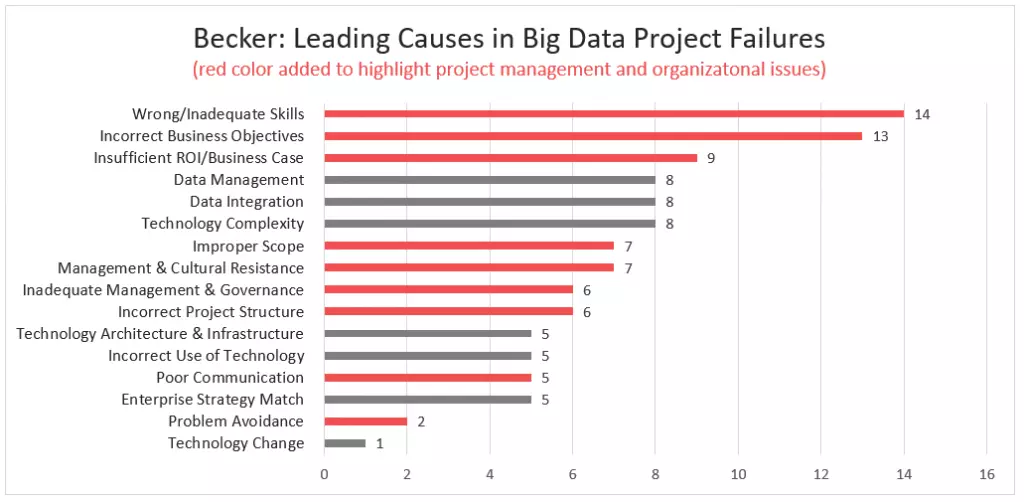Comments
- No comments found

One of the main reasons big data initiatives fail is because organizations don't know where all their data is.
Although big data has passed its peak in terms of hype and has become a fairly common part of numerous organizations, truly successful big data initiatives are still few and far between.
The emergence of new technologies like machine learning, AI, the internet of things (IoT), and now blockchain make big data seem like a thing of the distant past. From being dubbed as a revolutionary technology during its peak about half a decade ago, big data has been relegated to the back of everyone’s mind as something that is a standard part of businesses. Successful big data initiatives have not been very prevalent and the technology has been unable to deliver the value it once promised. In fact, experts estimate that 85% of big data projects fail to deliver the expected results. However, it is not so much a case of the technology failing businesses, as it is of businesses doing injustice to the technology. Following are five of the biggest reasons why organizations fail in big data initiatives.
Businesses expect too much, too soon from technologies, which sets them up for failure right from the first step. Business leaders usually learn of successful implementations of technology like big data and naturally expect the same results for their own organization. However, they fail to understand the role of technology and the contribution of the organization and its people in achieving that success. Using big data applications without proper analysis, testing and training and expecting it to do wonders can lead to failure of epic proportions. This is exemplified by former US presidential candidate Mitt Romney’s failed campaign due to the use of big-data without testing and training due to unrealistic expectations.
Having a long-term vision for the implementation of big data is important to have clarity along the way. Businesses usually fail to establish long-term objectives for big data, which leads to a lack of commitment in the long term. This usually stems from a lack of understanding of the technology’s capabilities or skepticism surrounding it. Either way, organizations that fail to buy into long-term big data projects usually neglect the initiative after the novelty wears off, which leads to the dwindling of the resources allocated to it. Without the continued supply of resources, big data initiatives end prematurely.
Achieving the most benefit from big data implementation requires its application in the right areas, to solve the right problems. Big data can be an excellent problem-solving tool and can help in answering any questions business owners may have. Thus, asking the right questions is necessary to use big data to solve the right problems and make a greater impact on the business performance. Asking the right questions with big data will enable data scientists to create algorithms that can derive the right insights to impact positive change.
Businesses without the long-term commitment to big data fail to invest in training and hiring experts to develop and maintain big data initiatives. Since data scientists can be hard to find and hire, businesses have a hard time keeping up with the skill demand for successful big data initiatives. Identifying employees from other functions who are proficient in statistics and computer science can be upskilled to perform data science functions and lead big data projects. While big data may seem like an outdated technology in the rapidly evolving tech world, it is still among the most potent drivers of business performance.

Source: Data Science Project Alliance
Business and technology leaders should commit to planning and implementing successful big data initiatives, by increasing their awareness of big data best practices. Doing so will not only improve their business performance multifold but will give them momentum for successful implementation of newer technologies like IoT and AI.
Naveen is the Founder and CEO of Allerin, a software solutions provider that delivers innovative and agile solutions that enable to automate, inspire and impress. He is a seasoned professional with more than 20 years of experience, with extensive experience in customizing open source products for cost optimizations of large scale IT deployment. He is currently working on Internet of Things solutions with Big Data Analytics. Naveen completed his programming qualifications in various Indian institutes.
Leave your comments
Post comment as a guest